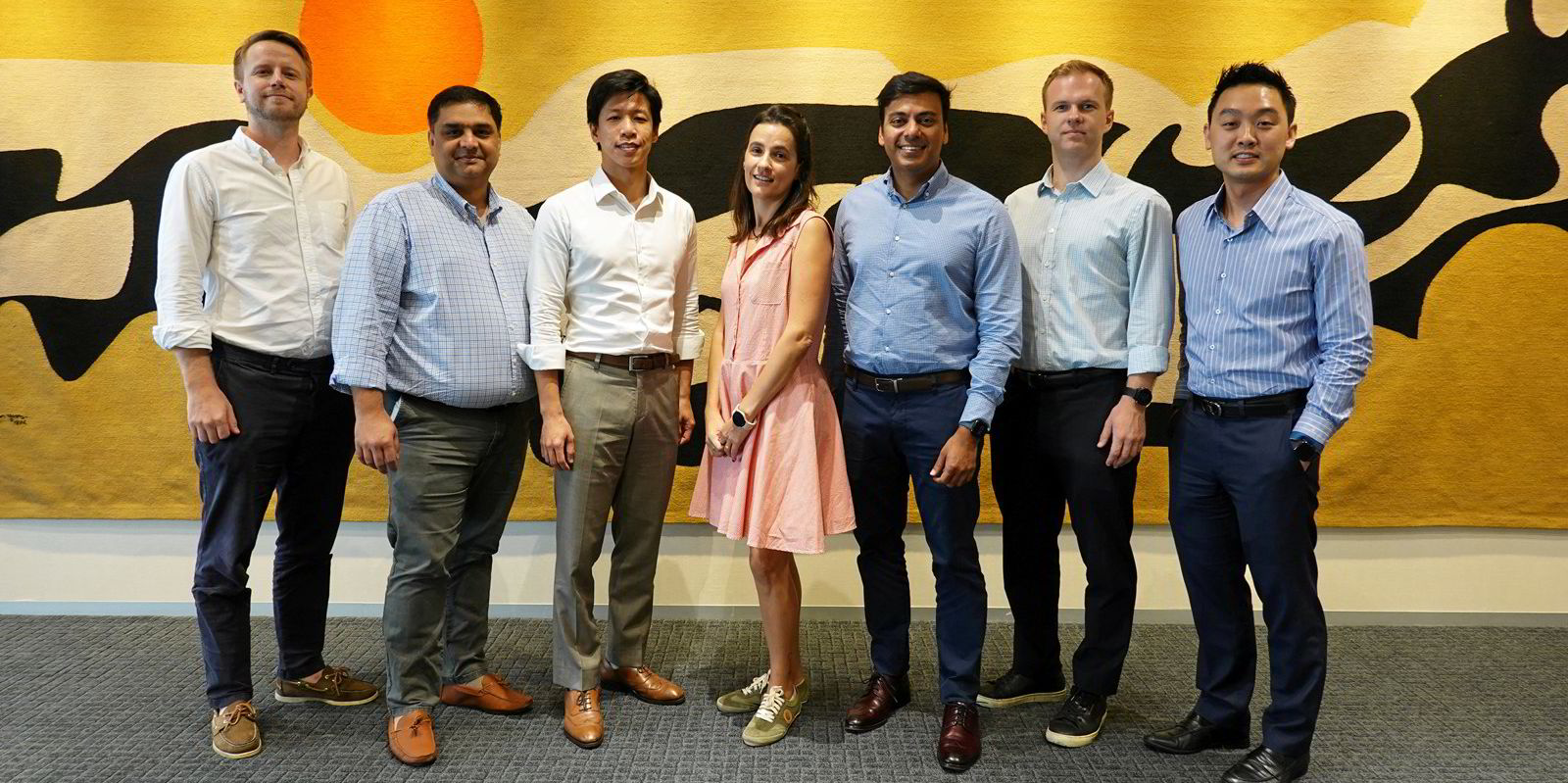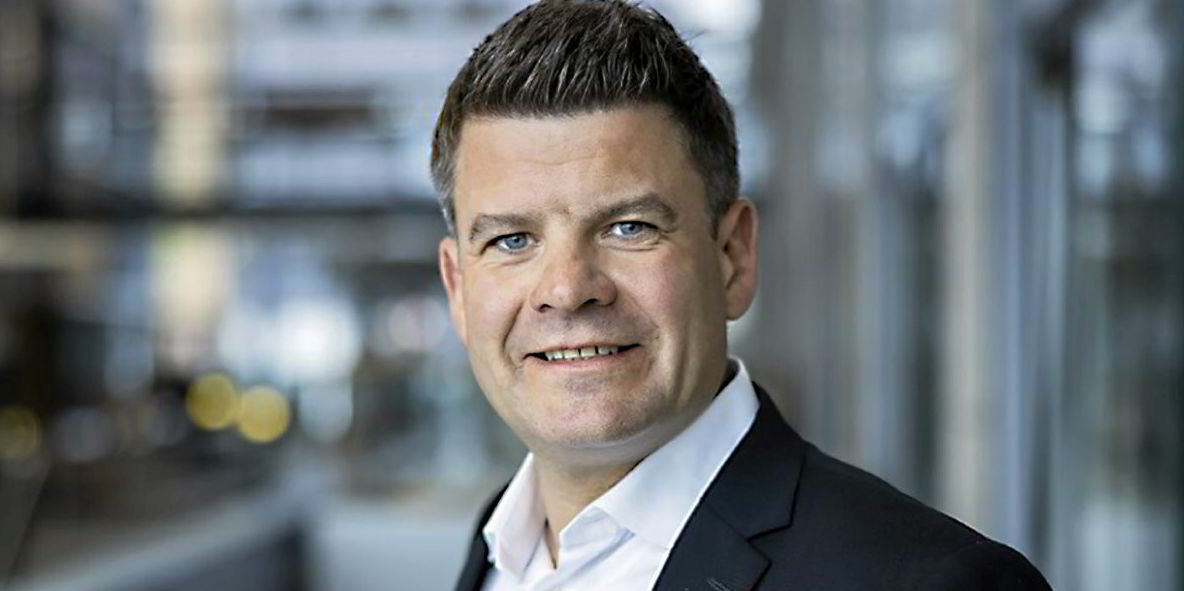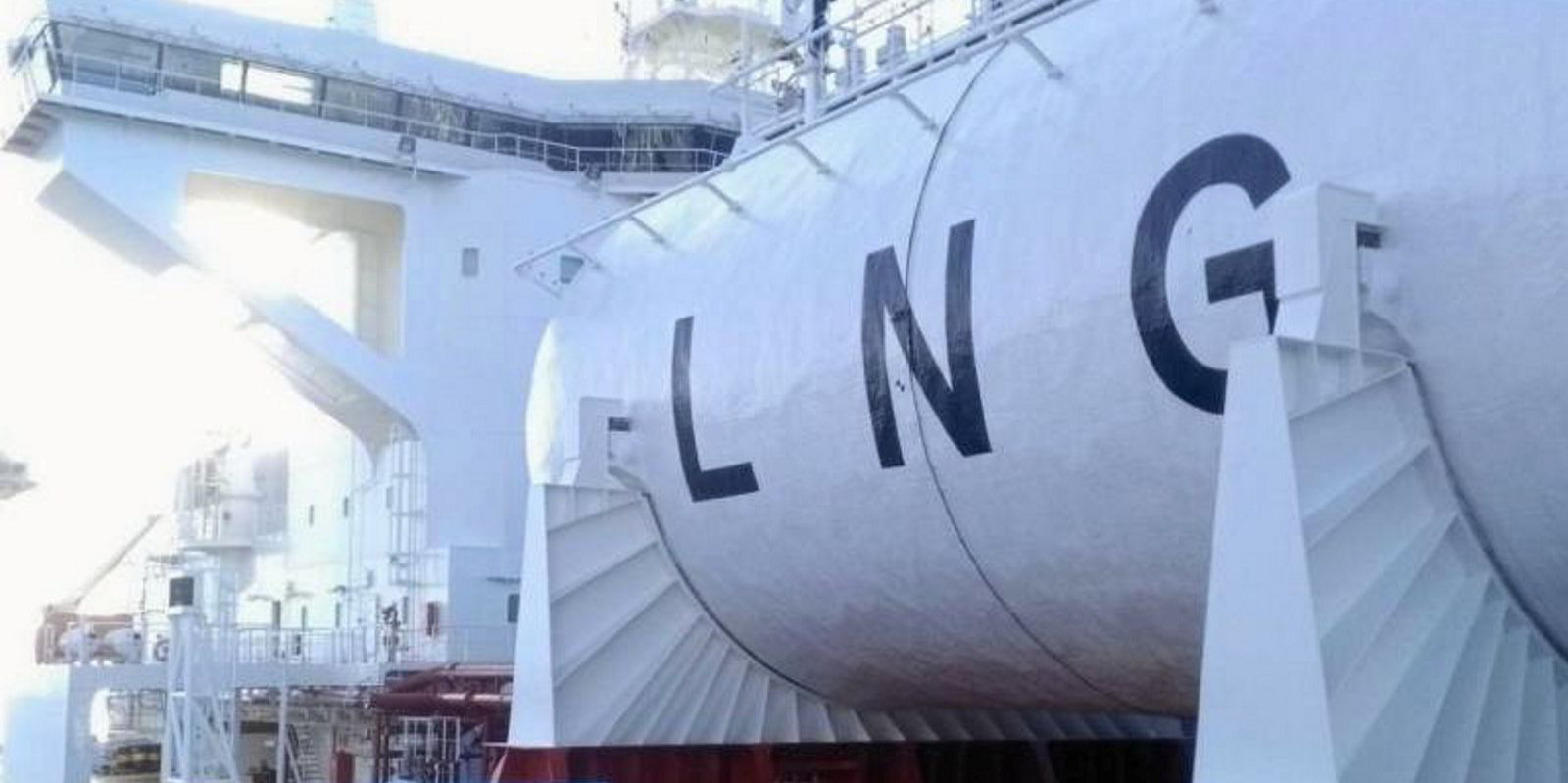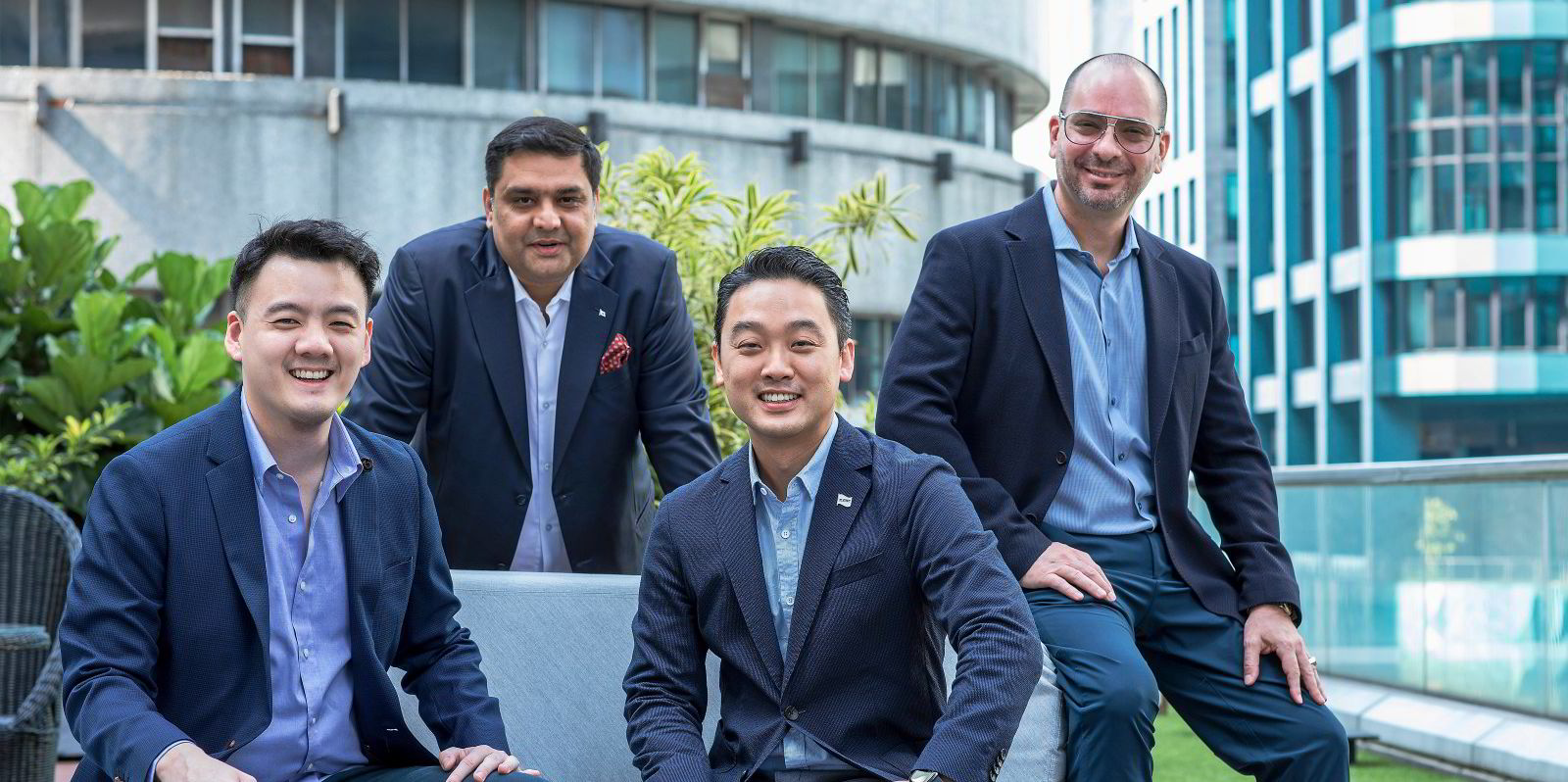Hafnia, along with Microsoft, the Wilhelmsen group, IMC Ventures and DNV launched a new digital venture accelerator, Studio 30 50, on 11 April.
Seated in Singapore, the studio’s objective is to find fresh solutions to a wide range of maritime environmental, social and corporate governance issues, as well as to support creative start-up ideas that aim to increase productivity throughout the shipping supply chain.
Leading the effort on Studio 30 50 is Shanker Pillai, head of innovation and change at Hafnia. He tells TradeWinds that the partners see the studio as a driver for solving some of today’s most pressing challenges in the maritime industry, broadly in the ESG concept space, but also in the broader supply chain efficiency.
Pillai said the studio has three roles. It is an investor in very early stage start-ups as well as individual founders who are looking to enter the maritime industry. It will also act as a co-founder for individuals who require a bit more support in hand-holding in their journey into the maritime industry. And, for start-ups who already have a product or service they want to explore within the industry, the studio will take the role of an accelerator.
“We will be willing to provide our networks to give access to the industry and put the start-ups in front of our customers, making sure their product market fit is good and the products they are creating are fit for purpose in the industry,” he said.
Studio 30 50 is open to start-ups from anywhere in the world. It will cast a very wide net.
“Areas we are looking at include adjacent industries to shipping where similar problems are solved by existing start-ups and founders who have great ideas that could potentially have a really good application in the maritime sector but have no idea how to enter the industry,” Pillai said.
Investment strategy
Studio 30 50 is not a fund, Pillai stressed.
“We are not managing anyone’s money. The partners independently invest, case-by-case on an individual investment basis. The studio is just a facilitator of the process,” he said, adding that in terms of investment stakes, there is no single amount and not one standard structure.
“We know there are standard models out there where you go for $100k equity or whatnot. We’re not big fans of those models. We want to look at what the idea is, what the scope is, how realistic this product looks like in the market and then decide on a number and investment.”
Equity stakes will be kept small, in part to maintain the enthusiasm and drive of a start-up’s founders.
Nakul Malhotra, vice president of emerging maritime opportunities at the Wilhelmsen group, said there is no prescriptive formula for start-up investments.
“It’s not one size fits all. Because of the width of what kind of talent and what kind of start-ups we want to attract, it is really dependent on each case. A big part of it is that individually, all Studio 30 50 partners are connected to a whole bunch of VCs in the market as well. Part of the derisking is to see how much attraction there is. And that should hopefully be a big attraction to the start-up founders as well,” he said.
Partner roles
Studio 30 50’s partners claim the key difference between theirs and other venture building studios is that its partners cover almost the entire shipping ecosystem including operators, asset owners, managers and a classification society, with each bringing their own perspective, expertise and network.
“That’s the whole purpose of this venture, changing the model and the way it works so that the industry uplifts as a whole,” said James Ong, IMC Industrial Group’s director of mergers and acquisitions and business development.
“IMC Ventures’ tagline is venture capital for a positive environment and social impact. And for us to do that, it is not only going to be IMC acting alone. Coming together as an ecosystem is more efficient. That was one of the key considerations when we looked at this opportunity,” said IMC Ventures’ venture partner Axel Tan.
Malhotra pointed out that a big part of adoption for any start-up in maritime is about being able to tap into the different parts of the value chain.
“The challenge of shipping is its global nature, which is high in terms of regulatory requirements and has a very complex stakeholder map. As a result of that, the approach of venture building is fundamentally consortium and partnership building. Coming together and tapping into talent and capital globally isn’t just about us investing. It’s about us facilitating other VCs and other maritime companies, getting them interested in some of these solutions, he said.
DNV is contributing from the tech partners side through its Veracity data storage and sharing platform and will also participate on the investment side.
“We are supporting from the angle of nurturing, domain competency, and class assurance and approval, said Magnus Lande, Veracity product line director and head of Asia-Pacific.
“We believe that going into the digital space and into the transformative space, trust and assurance are going to be needed, just like back in the days when you came with a new fuel. It’s a perfect match for us.”
Microsoft, the final piece of the Studio 30 50 puzzle, joins as the principal innovation partner, and will support all funded start-ups that will be incubated via its Microsoft for Startups Founders Hub programme. The platform gives start-ups free access to technology across the Microsoft Cloud, along with the tools and resources they need to build and run their business.
“Our first-in-Singapore collaboration with leaders in the global maritime space will infuse innovation in data and AI, sustainability and security into all parts of their industry,” said Richard Koh, Microsoft’s Singapore chief technology officer.
Beyond access to technology, Microsoft will connect the studio’s participants with mentors who will provide them with industry, business and technical guidance to help them navigate their next business milestones.







